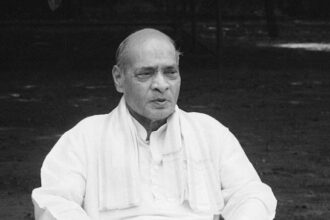In a significant ruling on Tuesday, that disappointed Queer Couples, the Supreme Court dismissed the plea for legal recognition of same-sex marriages, emphasizing that it falls within the exclusive purview of Parliament and state legislatures to establish such institutions and confer legal validation.
The five-judge constitution bench of the Supreme Court of India, led by Chief Justice of India Dhananjaya Y Chandrachud, along with justices Sanjay Kishan Kaul, S Ravindra Bhat, Hima Kohli, and PS Narasimha, was unanimous in its decision that it is not the role of the judiciary to direct the legislature to grant legal recognition to same-sex marriages.
Furthermore, the judges unanimously supported the formation of a high-powered committee proposed by the Centre in May to address the concerns of same-sex couples and explore potential remedial measures.
While the judgments, authored separately by the Chief Justice and justices Kaul, Bhat, and Narasimha, affirmed the right of queer couples to cohabit without fear of violence or interference, they declined to amend the provisions of the Special Marriage Act (SMA) to include non-heterosexual couples. The judges, however, were divided on the extent to which the court could intervene.
Supreme Court Maintains Status Quo for Queer Couples, Leaving Many Disillusioned
The majority rejected the notion of an enforceable right to civil unions, stating that if the right to marry is not deemed a fundamental right but rather a statutory one, then there cannot be a right to a civil union that holds legal enforceability. Additionally, the court ruled against granting non-heterosexual couples the right to jointly adopt a child.
The prolonged ten-day hearing in the supreme court, which saw intense arguments from both sides in March and April, revolved around over 20 petitions urging the court to address the alleged inequality faced by same-sex (Queer) couples in various aspects of marriage under existing legal provisions.
While the court clarified that the proceedings were confined to the legal validation of same-sex marriage within the realm of the Special Marriage Act (SMA), the petitioners, including same-sex couples, rights activists, social workers, and organizations, challenged the constitutional validity of multiple provisions of the SMA and other marriage laws that seemed to exclude same-sex couples from the institution of marriage.
In response, the Union government argued that marriage, as defined by legislative policy, should be exclusively between a biological man and a biological woman. It cautioned that recognizing same-sex marriages would disrupt the carefully balanced personal laws and societal values.
Although the government consented to the establishment of an inter-ministerial committee to explore administrative measures for the welfare of Queer couples, it urged the Constitution bench not to make any declarations regarding the acceptance of rights for same-sex couples or their relationships.
The Supreme Court’s decision marks a pivotal moment in India’s ongoing dialogue about the legal recognition of same-sex unions, emphasizing the necessity for parliamentary action on the matter.






